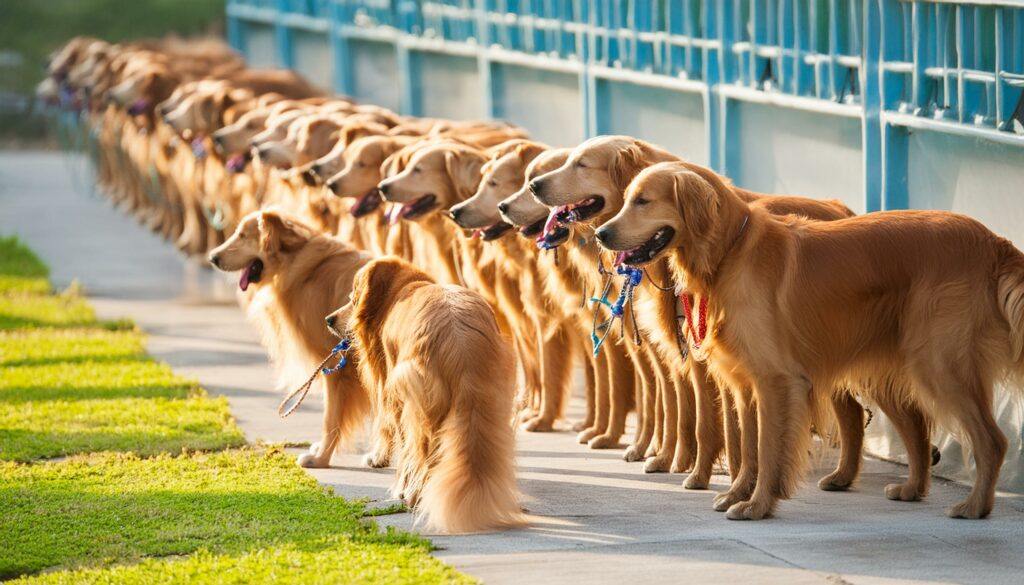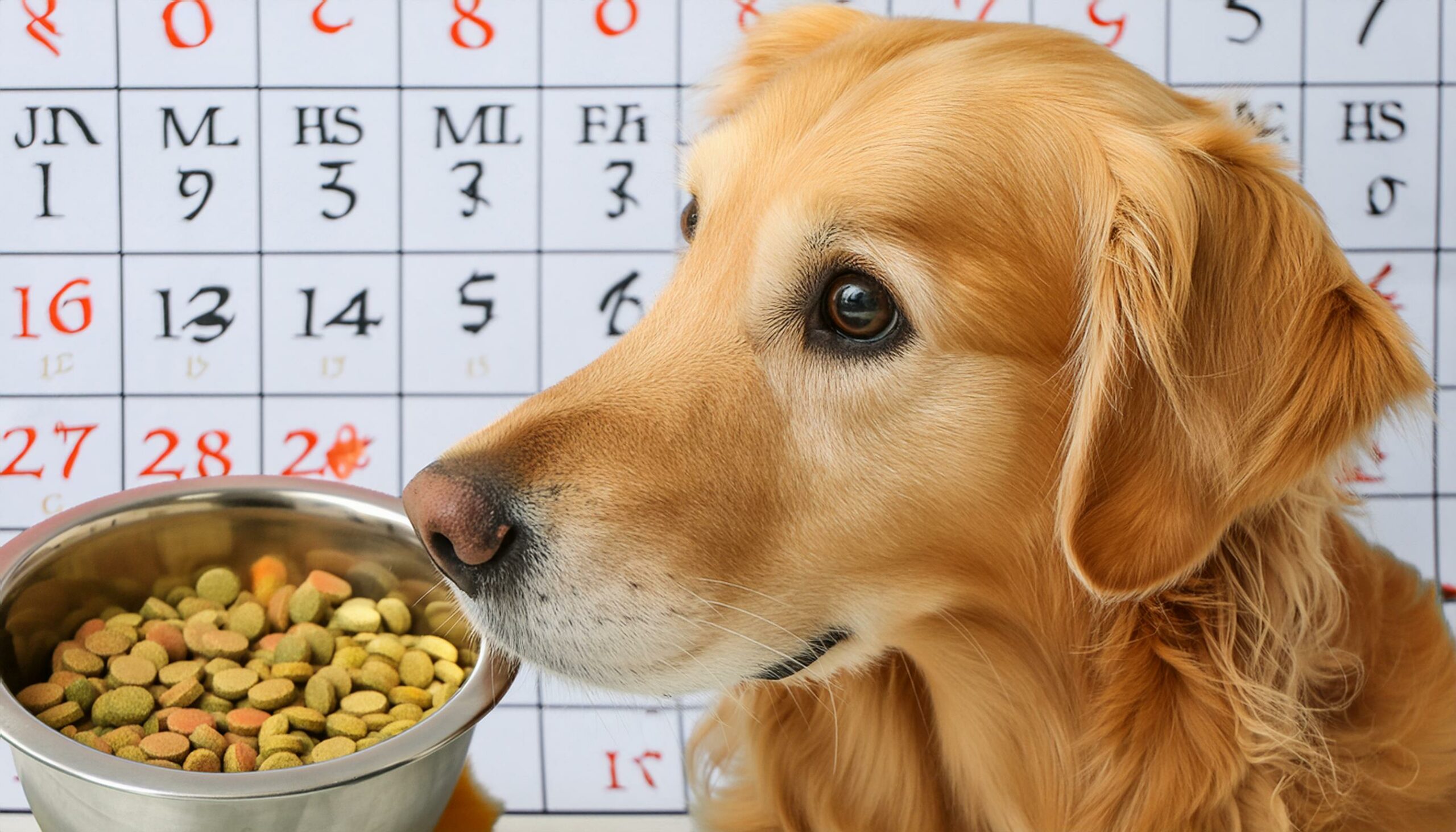If you have a golden retriever, you likely consider them a cherished member of your family. Just like any family member, you want to ensure they’re receiving the best care possible, and nutrition plays a crucial role in their health and well-being. One of the common questions among golden retriever owners is, “How many times a day should I feed my golden retriever?” Let’s explore the answer to this question and delve into the factors that influence the feeding frequency for your beloved furry friend.
Understanding Your Golden Retriever’s Nutritional Needs

Golden retrievers, known for their friendly disposition and love for companionship, require a balanced diet to thrive. Proper nutrition is essential for their growth, development, and overall health. Several factors influence how often you should feed your golden retriever, including age, activity level, and individual metabolism.
The Importance of Proper Nutrition
A well-balanced diet provides your golden retriever with the essential nutrients they need to maintain a healthy weight, strong muscles, and a shiny coat. Additionally, the right nutrition supports their immune system and promotes overall longevity.
Factors Influencing Feeding Frequency
Age plays a significant role in determining how often you should feed your golden retriever. Puppies have different nutritional needs than adult or senior dogs. Furthermore, the dog’s size and activity level can impact their metabolism and calorie requirements.
Age Considerations
During the puppy stage (from 8 weeks to 6 months), golden retrievers are growing rapidly and need frequent meals to support their development. As they transition to adulthood (around 1 year), their feeding frequency typically decreases. Senior golden retrievers (7 years and older) may require adjustments to their diet to accommodate changes in metabolism and activity levels.
Activity Level
Active golden retrievers who participate in regular exercise may require more frequent feeding to maintain their energy levels. Conversely, less active dogs may need fewer meals to prevent weight gain.
Feeding Schedule for Golden Retrievers
Puppy Stage (8 weeks – 6 months)
Puppies should be fed three to four times a day to accommodate their fast metabolism and growth spurts. Meals should be spaced evenly throughout the day to prevent digestive issues.
Adolescent Stage (6 months – 1 year)
As puppies reach adolescence, you can gradually reduce feeding frequency to three meals a day. Monitor their growth and adjust portion sizes accordingly.
Adult Stage (1 year and older)
Adult golden retrievers typically thrive on two meals a day, provided at consistent times. This schedule helps regulate their metabolism and prevents overeating.
Senior Stage (7 years and older)
Senior golden retrievers may benefit from smaller, more frequent meals to aid digestion and prevent obesity. Consider switching to a senior-specific diet to address age-related health concerns.
Portion Control and Meal Sizes
Regardless of age, portion control is crucial for maintaining a healthy weight in golden retrievers. Follow feeding guidelines provided by your veterinarian and adjust portion sizes based on your dog’s activity level and body condition.
Tips for Feeding Your Golden Retriever
Choosing the right food is essential for your golden retriever’s health and well-being. Opt for high-quality dog food that is formulated to meet their specific nutritional needs. Avoid overfeeding, as excess weight can lead to joint problems and other health issues. Always provide fresh water and consider incorporating supplements under the guidance of your veterinarian.
Common Mistakes in Feeding Golden Retrievers
Avoid common feeding mistakes such as overfeeding, feeding table scraps, and neglecting portion control. Monitor your golden retriever’s body condition and adjust their diet as needed to maintain optimal health.
Conclusion
Feeding your golden retriever the right amount of food at the right times is crucial for their health and happiness. By understanding their nutritional needs and following a feeding schedule tailored to their age and activity level, you can ensure your golden retriever leads a long, healthy life filled with tail wags and belly rubs.
FAQs
How often should I feed my golden retriever?
The feeding frequency depends on your dog’s age, with puppies requiring more frequent meals than adult or senior dogs.
Can I feed my golden retriever human food?
It’s best to avoid feeding your golden retriever human food, as it may not provide the balanced nutrition they need and can lead to digestive upset.
What should I do if my golden retriever is overweight?
Consult your veterinarian for guidance on adjusting your dog’s diet and exercise regimen to help them achieve a healthy weight.
Are there any foods I should avoid feeding my golden retriever?
Avoid feeding your golden retriever foods that are toxic to dogs, such as chocolate, grapes, and onions.
How can I tell if my golden retriever is getting enough food?
Monitor your dog’s body condition and energy levels. Consult your veterinarian if you have concerns about their weight or appetite.
